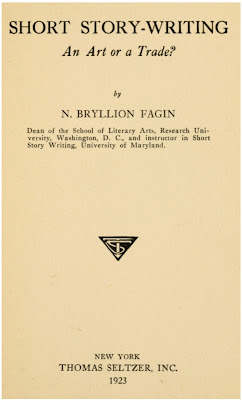I Overture 1
II Action 12
III "O. Henryism" 29
IV The Moving Pictures 48
V Verboten 67
VI The Artificial Ending 101
VII Form and Substance 114
VIII Finale 125
IX Effect 132
Index 137
Moods may be uncomfortable, and sad, and painfully disturbing, but, on the other hand, they make pleasant music occasionally. Here I sit in the dusk, looking out Into the street that is ordinarily so familiar to me, but has suddenly become blurred and weirdly mysterious in the gathering murk. A veil is over my eyes, which see the familiar houses across the street, the young poplars In front of them, the few passersby. But my mind does not discern these objects; It sees far subtler things — floating, flimsy, evanescent. The dusk is in my mind, evoking thoughts. Illusions, pictures — and speaking, questioning, singing. The dusk is an overture to the things I have set out to say, playing innumerable variations of my theme, whispering in every note: "Stories, Stories, Stories!"
The PDF might take a minute to load. Or, click to download PDF.
If your Web browser is not configured to display PDF files. No worries, just click here to download the PDF file.


